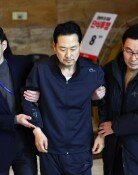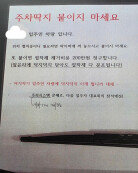Prosecuting Power Not Granted in Corruption Investigation
Prosecuting Power Not Granted in Corruption Investigation
Posted June. 29, 2004 22:09,
The government decided yesterday that although independent investigative power will be given to the Investigating Office of High-Ranking Officials Corruption, it will not receive prosecuting power.
The investigating office is being established under the Korean Independent Commission Against Corruption (KICAC).
It is told that the government has decided on this matter when KICAC submitted the plan to establish the investigating office during the Second Conference of the Institutes against Corruption, held under the supervision of President Roh Moo-hyun.
Also, the government decided to disperse the power of the councils of private schools by reforming the law on private schools in order to resolve the corruption of private foundations.
Under KICACs plan, the investigating office will investigate officials at the level of vice-minister and above. However, all judicial officers and prosecutors, police officials who are at the level of inspector general or above, generals of the army, and officials of the third level or above in the National Intelligence Service are under the investigation of the office.
The lineal descendents as well as brothers and sisters of the high-ranking officials can also be investigated, but only in relation to official corruptions. Additionally, the chief of the investigating office will serve for three years. A hearing for the appointment of the chief will be held in the National Assembly, and appointment agreement is needed to secure the independence of the office.
KICAC reported that the investigating office will not be provided with the prosecuting power, and no objections were reported among the participants of the conference. However, some assemblymen of the Uri Party and the Democratic Labor Party are requesting to grant prosecuting power to the office, and controversy is expected to arise in the legislative council.
An Byung-young, the deputy prime minister and minster of education and human resources development, called on the conference to resolve corruption in private schools like accounting fraud, to reform private school law to raise the spirits of the private school councils, and to disperse the authority of the councils.
An, the deputy prime minister, said that by this year, the inspection of accounting practices will intensified, accounting information will be made public, and the parents of students will be able request inspection.
Under the reformation bill on the private school law, the proportion of family members in the council will be decreased, the authority of the council will be dispersed, and assembly records will be made public. Additionally, a private school conflict arbitration committee will be established as an independent organization, and private schools that do not follow the arbitration of the committee will receive both administrative and financial penalties.
Also, KICAC chose taxation affairs, construction procurement, regulations, public corporations and international credit-related private corporations as the worst five areas for corruption, and the KICAC vowed to focus on reforming the systems of these five areas.
Jung-Hun Kim Young-Hae Choi jnghn@donga.com yhchoi65@donga.com







